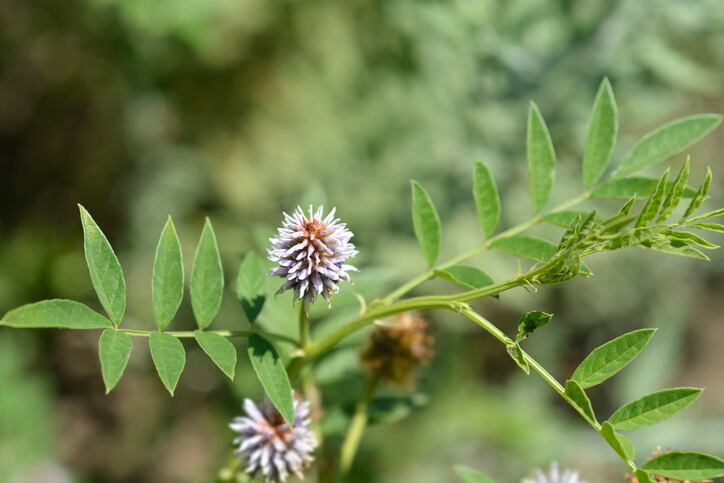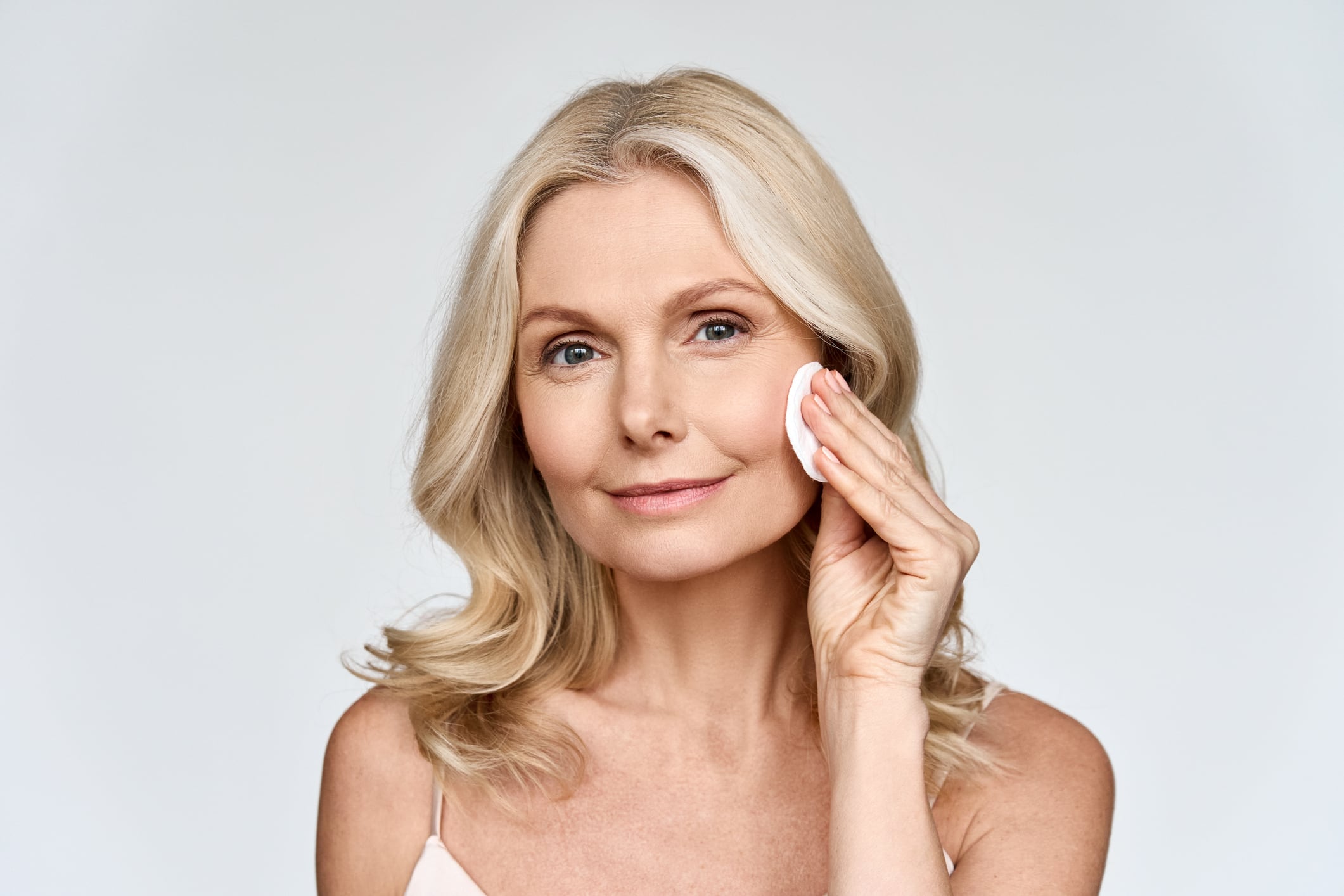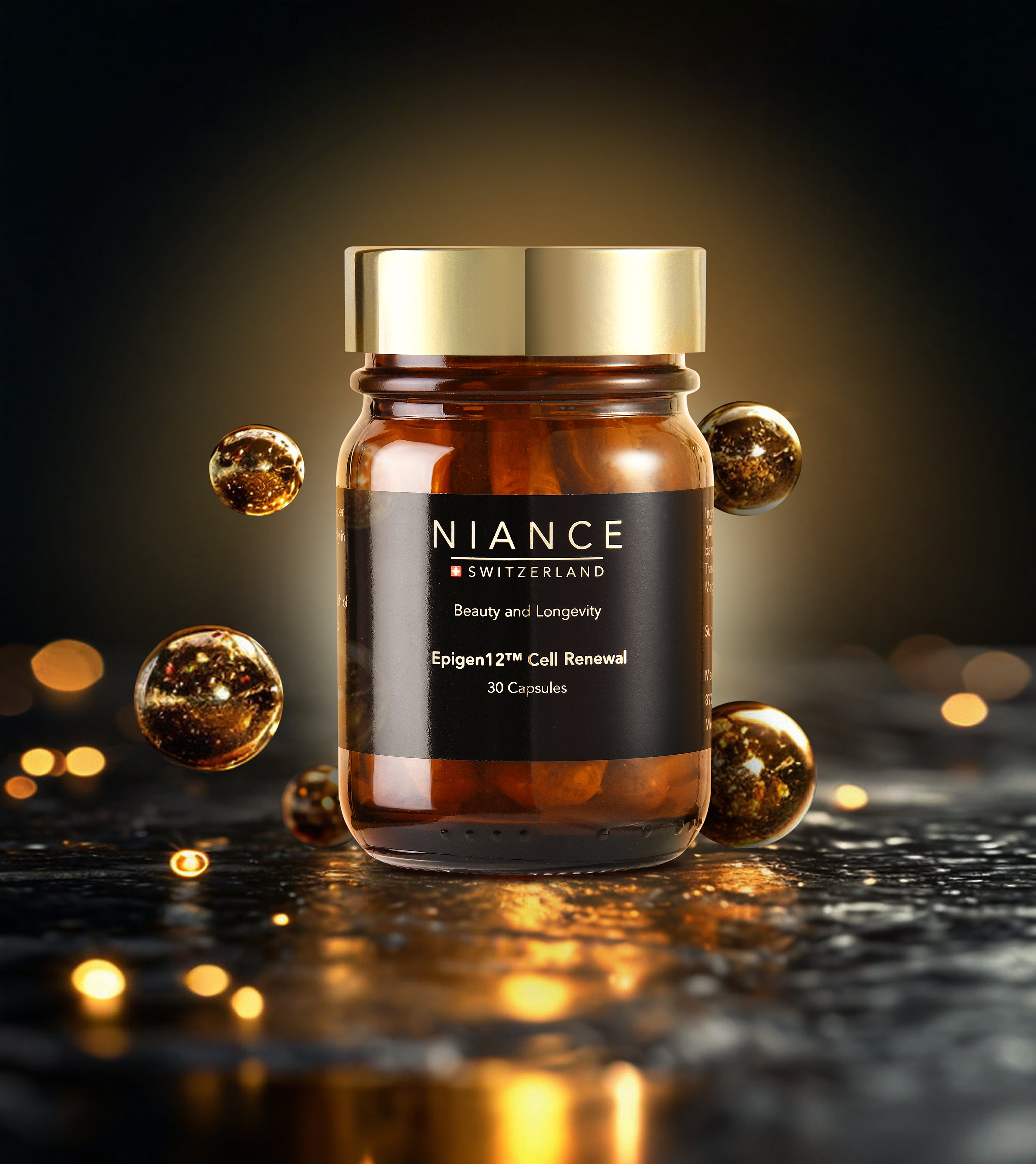Scientists at the Swedish cosmetics company Oriflame have used AI to select potential active ingredients and, as a result, have developed a natural-origin ingredient that restores skin affected by declining oestrogen levels.
The company said this innovation “marks a significant milestone” in its bid to develop more advanced, science-backed skincare solutions.”
Natural alternative to HRT and topical oestrogen
The research, which has been published in the Journal of Cosmetic Dermatology, explored the potential of Glycyrrhiza uralensis (Chinese liquorice root) extract as a natural alternative to hormone replacement therapy (HRT) and topical oestrogen treatments for enhancing skin health, particularly in post-menopausal women.
Menopause starts when oestrogen levels begin to fluctuate and for skin, this can influence everything from hydration to collagen production, affecting skin’s firmness and elasticity.
The study focused on the extract’s ability to stimulate collagen production and improve dermal density while also examining its protective effects against sources of environmental stress, such as UV radiation and pollutants.
Oriflame said it had used technology tools like data mining, network analysis, and visualisation to quickly analyse thousands of plant compounds, which led to the identification of liquiritigenin – a powerful phytoestrogen found in the extract.
“Through rigorous testing, we confirmed its ability to help counteract the effects of hormonal ageing,” said the company.
“This breakthrough research led to the development of our patented Bio Boost Technology, an exclusive Oriflame innovation that enhances skin’s structural components, helping to restore vitality and resilience.”
“Through our AI-driven research and scientific validation, Chinese Liquorice Root extract was found to deliver remarkable skincare benefits,” it continued.

Helps restore skin’s structural integrity
The research discovered that the ingredient could:
- Boost Collagens I and III – the key types most affected by menopause. This can help to restore skin’s structural integrity and protect against collagen breakdown by inhibiting the enzymes responsible for degrading collagen.
- Dramatically increase skin density, improving firmness, elasticity, and smoothness over time.
These findings led the company to develop its patented Bio Boost Technology, which can be seen in its Novage+ Restore Renewing Eye & Lip Contour Cream, which lifts sagging eyelids and visibly improves the look of four types of wrinkles; and its Novage+ Restore Renewing Face Serum, which was clinically proven to improve skin elasticity, firmness, texture, and tone.
The study
Oriflame used AI to find the potential ingredients to test, then G. uralensis rhizomes were processed to extract active phytoestrogens, specifically liquiritigenin and its glycosides.
The research itself assessed two markers – cysteic acid and protein carbonylation – as indicators of oxidative damage in skin due to chemical and photochemical exposure.
It investigated the effects of G. uralensis extract on collagen I and III gene expression in human dermal fibroblasts and assessed the extract’s ability to inhibit matrix metalloproteinase-1 (MMP1) production.
For the in vitro studies, it treated primary human dermal fibroblasts with the extract and then measured the gene expression for collagen types I and III and pro-collagen I protein levels.
For the in vivo study: healthy female volunteers either applied the active formulation containing 1% G. uralensis extract or an alternative formulation to facial skin for 56 days, and then changes in dermal density were measured.
The in vivo clinical trial showed a significant improvement in dermal density within the active-treated group after 56 days, with a 44% increase compared to the vehicle-treated group’s 24% improvement, indicating that G. uralensis extract can effectively enhance skin’s structure and resilience.
Further analysis revealed that the active formulation provided greater benefits for participants over 50 years old, showing a significant correlation between age, oestrogen decline, and response to phytoestrogens. This suggested that G. uralensis may benefit aging skin by mimicking oestrogenic effects.
The study validates the xtract as a promising natural alternative to HRT for supporting collagen production and enhancing skin density, particularly in post-menopausal women.
The extract also shows protective effects against oxidative stress caused by UV and pollution while providing a dual mechanism of stimulating collagen synthesis and inhibiting its degradation through MMP1 reduction.
Source: Journal of Cosmetic Dermatology
Phytoestrogens as Natural Anti-Aging Solutions for Enhanced Collagen Synthesis in Skin
Nahid Amini, Christina Osterlund, Jessen Curpen, Virginie Lafon-Kolb, Thibaud Richard, Lene Visdal-Johnsen
09 December 2024 https://doi.org/10.1111/jocd.16719





